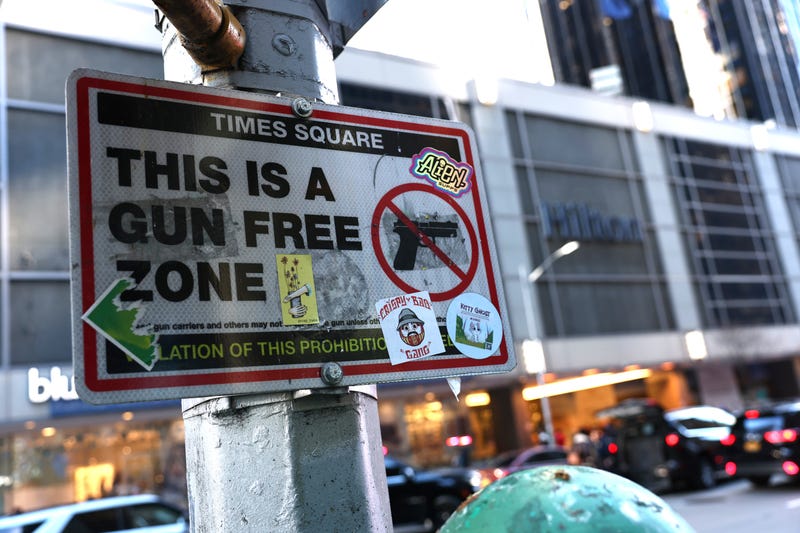
NEW YORK (BLOOMBERG) -- The US Supreme Court refused to question New York’s 2022 gun restrictions, including the state’s limits on concealed-carry licenses and its ban on weapons in buses, parks and crowded venues.
The justices without comment turned away an appeal by six New York residents who said the restrictions infringe the Constitution’s Second Amendment and fly in the face of recent Supreme Court rulings bolstering gun rights.
The disputed law requires applicants for concealed-carry licenses to show they are of “good moral character” and aren’t a danger to themselves or others. Applicants must provide character references and a list of people who live in the same home, undergo an in-person interview and complete 18 hours of in-person training.
The law also creates gun-free zones in 20 categories of “sensitive locations,” including restaurants serving alcohol, health-care facilities, polling places and sites of political protests.
New York enacted the measure weeks after the Supreme Court struck down the state’s previous system for granting concealed-carry licenses in a 2022 ruling that imposed a tough new test for firearms regulations. The New York-based 2nd US Circuit Court of Appeals upheld most of the new restrictions.
The residents, led by Ivan Antonyuk, said the 2nd Circuit misapplied the requirement under the 2022 ruling that defenders of gun laws show a history of analogous restrictions. The residents said the lower court should have focused on laws that were in effect in 1791, when the Constitution was ratified.
The group also argued that the “good moral character” requirement gives officials too much discretion to decide who gets a license.
The rejection marks the third time the Supreme Court has refused to hear an appeal from the residents in the case.
The case is Antonyuk v. James, 24-795.
